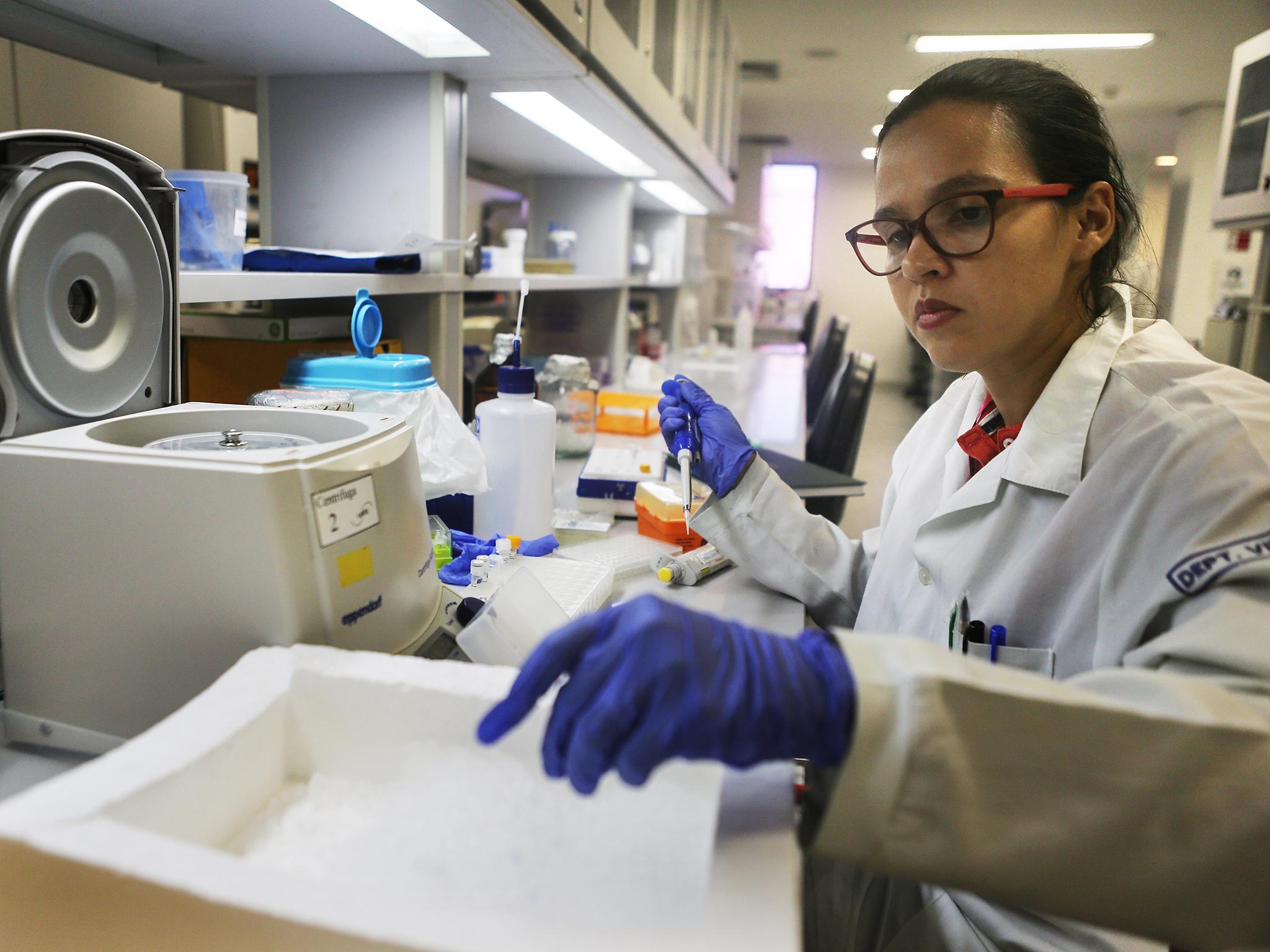Zika: First sexually transmitted case of virus recorded in UK
Public Health England says the woman is likely to have contracted the virus from her partner who had recently returned from an infected region

The first case of a person with sexually transmitted Zika virus has been recorded in the UK.
Public Health England (PHE) said they believe the woman contracted the virus through sexual contact as her partner had recently travelled from one of the affected regions.
She was not pregnant at the time of her infection and has since made a full recovery.
Of the 265 British travellers identified as being infected with the virus, the majority of cases - 190 - are associated with travel to the Caribbean, according to the figures from PHE.
Cases have been linked to travel to Barbados, Jamaica, St Lucia, Grenada, and Trinidad and Tobago.
Meanwhile, 33 cases have been linked to travel to South America and two patients have visited the heavily infected Miami-Dade region in Florida.
One case has been reported from South East Asia and another has been linked to travel to Oceania.
The mosquito-borne disease has been linked to the birth defect microcephaly, which means babies are born with abnormally small heads. It has been endemic in Latin America over the past few years with over 4,000 Zika-linked microcephaly cases reported in Brazil in 2015 alone.
The Zika virus - in pictures
Show all 5Earlier this year, the virus’ link to microcephaly was deemed a public health emergency by the World Health Organisation.
But the mosquito which carries the virus, Aedes aegypti, is not found in the UK, lessening the risk of transmission.
Professor Dilys Morgan, Zika incident director at PHE, said: “It is important to remember that the main risk relates to travellers to countries classified as high or moderate risk for Zika infection.
“Zika infection is usually a mild, self-limiting illness, and PHE's advice is based on the fact that our main concern is to avoid infection in pregnancy, in order to avoid risk to the unborn child.”
Official guidelines warn men to use condoms for at least six months after travelling back from an infected area.
Women should try to avoid getting pregnant for at least two months after they leave an area deemed to have a “high or moderate” risk of Zika virus transmission.
WHO officials lifted the public health emergency declaration earlier this month but warned that the virus’ link to microcephaly was still a “significant and enduring public health challenge”.
Subscribe to Independent Premium to bookmark this article
Want to bookmark your favourite articles and stories to read or reference later? Start your Independent Premium subscription today.

Join our commenting forum
Join thought-provoking conversations, follow other Independent readers and see their replies